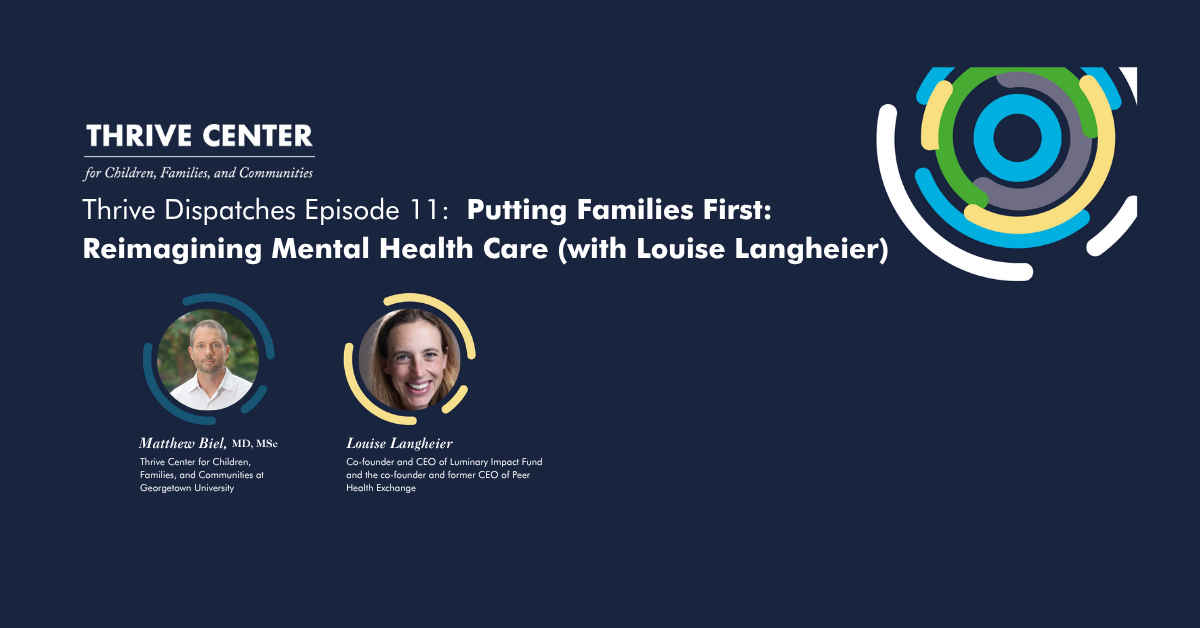Thrive Dispatches Episode 11: Centering Families in Mental Health Through Impact Investment (with Louise Langheier)
There’s no impact without funding. This week, Thrive Dispatches Podcast explores the family-centered approaches to mental health through the lens of impact investing.
Our guest is Louise Langheier, founder of Luminary Impact Fund, the first venture capital philanthropy fund dedicated exclusively to family mental health. Louise brings a unique perspective shaped by personal experiences and decades of social impact work, including co-founding Peer Health Exchange, which now serves over half a million young people annually.
When most of the industry prioritizes individual-focused models, Louise’s work makes a strong case for family-centered approaches to mental health care.
This conversation reveals why family-centered approaches to mental health remain surprisingly scarce despite their obvious importance, examining the structural obstacles in payment systems, the cultural individualism that shapes American healthcare, and the innovative leaders who are breaking through these barriers with creative new models of care.
For questions, comments, or ideas for future episodes, please email us at: thrivecenter@georgetown.edu.
Download Full Transcript
Summary:
In this excerpt, Louise shares the story of her family’s resilience in the face of medical crisis, demonstrating how young people can lead families through impossible moments and the strength it takes to refusing to accept inadequate care for those we love.
This interview has been edited for length and clarity.
Louise: I can remember actually one example of this being when my mom was sick, she had to get, like many people do, a kind of emergency CAT scan for something going on with her cancer. And classically in our healthcare system, it takes forever to do that no matter how bad your situation is. And we had it better than most in our access. And I remember sitting in the waiting room of a doctor’s office when the doctor told us that we’d have to wait, like, three weeks for this CAT scan that she had, like, you know, less than six months to live. And I remember my younger brother just saying with my sister who was quite young, seven at the time, and me, “Well, that’s okay, we’re just going to wait in the waiting room until the CAT scan opens up. No problem. Like, we’ll just be here, the three of us.” And our dad and my little sister, like, sitting there with my brother and me waiting for this CAT scan, and this amazing woman at the front office just looking at these three kids being like, “Okay, we’ll figure out a way to get a CAT scan for your mom.” And the power of that experience as the three of us as siblings, not to mention my dad and feeling that strength and commitment to each other and to our mom.
Matt: There’s so much power in learning what you just said, the image of you and your brother and sister sitting in that waiting room just gently, but insisting, refusing to take no for an answer for your mom. That will stay with me for a long time.
Listen to the full episode
